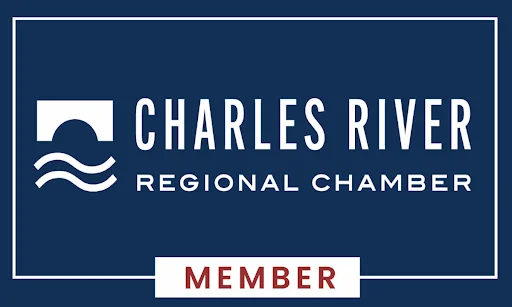Clinically Reviewed by Dr. Kate Smith
What Is an Inpatient Treatment Program?
At Greater Boston Behavioral Health (GBBH), our Inpatient Treatment Program offers a safe and nurturing environment for individuals facing mental health challenges. Clients benefit from personalized treatment plans developed by a dedicated team of mental health professionals, including psychiatrists and therapists.
The program encompasses therapy, medication management, and skills training to help manage symptoms and improve overall well-being. Our goal is to empower clients with the tools and support necessary to lead happier, healthier lives, whether they are dealing with anxiety, depression, or other mental health issues.
Looking for 24/7 Support and Stability?
Our inpatient program offers round-the-clock care in a safe, healing environment.
Let’s find the level of care that matches where you are right now.
What Are Some Common Services in Inpatient Care?
In inpatient care, individuals benefit from a range of essential services designed to support their mental health recovery and well-being. Common services include:
- 24/7 Medical Supervision: Continuous monitoring and support from healthcare professionals to ensure safety and address any medical needs.
- Individual Therapy: One-on-one sessions with licensed therapists to explore personal challenges, develop coping strategies, and work towards recovery goals.
- Group Therapy: Structured group sessions that encourage sharing experiences, fostering connections, and learning from peers in a supportive environment.
- Medication Management: Regular evaluations and adjustments of medications as needed, provided by psychiatrists or medical professionals to manage symptoms effectively.
- Cognitive Behavioral Therapy (CBT): Helps individuals identify and change negative thought patterns and behaviors contributing to anxiety, depression, etc, while promoting healthier coping strategies.
- Dialectical Behavior Therapy (DBT): Focuses on emotional regulation, distress tolerance, and improving interpersonal relationships, especially for those dealing with intense emotions and trauma.
- Acceptance and Commitment Therapy (ACT): Encourages clients to accept their thoughts and feelings while committing to behavioral changes that align with their values, helping to manage anxiety, depression, and other mental health struggles.
- Skills Training: Programs focused on developing essential life skills, such as stress management, communication, and coping strategies, to aid in the recovery process.
- Family Therapy: Involvement of family members in the treatment process to enhance communication, support healing, and strengthen relationships.
- Eye Movement Desensitization and Reprocessing (EMDR): A specialized therapy designed to help individuals process and heal from traumatic memories by utilizing guided eye movements, facilitating the integration of distressing experiences and reducing symptoms of PTSD and trauma-related issues.
- Holistic Therapies: Complementary therapies such as art therapy, yoga, and mindfulness practices that promote overall well-being and address emotional and psychological needs.
- Aftercare Planning: Preparation for transitioning back to daily life, including developing a comprehensive aftercare plan to support continued recovery and prevent relapse.
These services are designed to create a structured and supportive environment that fosters healing and personal growth during the inpatient treatment process.
Types of Inpatient Care at GBBH
At Greater Boston Behavioral Health (GBBH), we offer a variety of inpatient care programs tailored to meet the diverse needs of our clients. These programs include:
- Psychiatric Stabilization Program
- Designed for individuals experiencing acute mental health crises, this program focuses on stabilizing symptoms through intensive therapy and medication management.
- Substance Use Treatment Program
- This program provides comprehensive support for individuals struggling with substance use disorders, including detoxification, counseling, and relapse prevention strategies.
- Dual Diagnosis Program
- Targeting clients with co-occurring mental health and substance use disorders, this integrated program offers coordinated care to address both issues simultaneously.
- Trauma-Informed Care Program
- This program emphasizes safety and healing for individuals with a history of trauma, utilizing specialized therapeutic approaches to promote recovery.
- Post-Acute Care Program
- Designed for individuals transitioning from more intensive treatment settings, this program focuses on ongoing support, skill development, and relapse prevention.
Each of these inpatient care programs is delivered by a compassionate team of mental health professionals dedicated to helping clients achieve their recovery goals in a supportive environment.
- Psychiatric Stabilization Program
Is Inpatient Treatment Right for Me or My Loved One?
At Greater Boston Behavioral Health, we recognize that choosing inpatient treatment is an important decision. If you or a loved one is facing challenges such as severe anxiety, depression, mood swings, or other mental health issues, inpatient treatment may provide the intensive support needed for recovery. Our dedicated team is here to offer guidance, compassionate care, and personalized treatment options tailored to your specific needs. If you’re uncertain whether inpatient treatment is the right path, we encourage you to reach out for a consultation to discuss your situation. Your mental well-being is our top priority.
Mental Health Conditions That May Need Inpatient Treatment
- Depression: Persistent feelings of sadness or disinterest that can range from mild to severe, often impacting daily functioning.
- Anxiety Disorders: Intense worry, panic attacks, and fears that may interfere with everyday activities and social interactions.
- Bipolar Disorder: Characterized by extreme mood swings, oscillating between high-energy states and deep sadness.
- Schizophrenia: A serious condition that affects thoughts and perceptions, potentially leading to confusion, delusions, or hallucinations.
- Obsessive-Compulsive Disorder (OCD): Involves repetitive, intrusive thoughts and compulsive behaviors that feel overwhelming and uncontrollable.
- Post-Traumatic Stress Disorder (PTSD): Severe reactions following traumatic experiences, including flashbacks, anxiety, and emotional distress.
- Eating Disorders: Disorders such as anorexia and bulimia that involve unhealthy eating habits and significant preoccupation with body image.
- Borderline Personality Disorder: Marked by instability in moods, behaviors, and interpersonal relationships, often leading to emotional turmoil.
- Anger Management Issues: Difficulty in controlling anger, resulting in outbursts or aggressive behavior that can affect personal relationships and well-being.
Inpatient treatment can provide the intensive support and structured environment needed to address these complex conditions effectively.
Massachusetts- Based Mental Health Treatment Statistics
Mental Health in Massachusetts. www.nami.org/wp-content/uploads/2023/07/MassachusettsStateFactSheet.pdf.
The Cost of Mental Illness: Massachusetts …, healthpolicy.usc.edu/wp-content/uploads/2019/05/MA-Chartbook-v3-2019.pdf
Mental Health in Massachusetts. www.nami.org/wp-content/uploads/2023/07/MassachusettsStateFactSheet.pdf.
Mental Health in Massachusetts. www.nami.org/wp-content/uploads/2023/07/MassachusettsStateFactSheet.pdf.
Finding Inpatient Treatment Near Me
At Greater Boston Behavioral Health, we provide inpatient treatment for individuals seeking help with mental health issues in a supportive environment. Our aim is to assist clients in managing their symptoms and improving their overall well-being. To learn more about our inpatient treatment program, please call us at (888)278-0716 or visit our location in Needham, MA.
- Greater Boston Behavioral Health: 322 Reservoir Street Needham, MA 02494
Accreditations You Can Trust
Trusted, Recognized, and Backed by Leading Organizations
These badges reflect our standing with respected local and national groups — including Psychology Today, Charles River Recovery, and the Massachusetts Department of Public Health. Click below to see what each badge means.
The Joint Commission
Considered the gold standard in healthcare quality, The Joint Commission evaluates programs on safety, ethics, and clinical excellence. Their seal means our treatment meets some of the most rigorous national standards in the field.
Massachusetts Department of Public Health
DPH approval confirms that our programs follow all state requirements for safety, staffing, licensing, and oversight. In simple terms: the state reviews our operations and verifies that we meet the standards needed to provide trustworthy care.
Psychology Today Verified
Being verified on Psychology Today shows that our clinicians are licensed, professionally credentialed, and approved by one of the most widely used mental health directories in the country.
Charles River Recovery Partnership
This partnership connects us with another respected Massachusetts treatment provider, allowing clients to move safely between levels of care and ensuring continuity, collaboration, and high-quality support.
National Quality Seal (Gold Emblem)
This represents our commitment to following recognized best practices in behavioral health. It signals that we go beyond the basics — focusing on safe, ethical, evidence-based care at every step.
Is Inpatient Treatment Covered By My Insurance Provider?
To confirm your insurance coverage for inpatient treatment at Greater Boston Behavioral Health, begin by contacting your insurance provider to inquire about your plan specifics. You can also check online or review your benefits handbook. Our team is here to help you navigate your insurance plan and determine which services are covered, making it easier for you to focus on getting the care you need.
What Does the Inpatient Treatment Admission Process Entail?
At GBBH, we strive to make the admission process straightforward and supportive. It begins with an initial consultation, where our experienced team assesses your mental health needs, reviews your symptoms, and discusses your treatment history. This evaluation helps us identify the most suitable level of care and create a personalized treatment plan tailored to your needs. After the assessment, our admissions team will assist with paperwork, coordinate with your insurance provider, and address any questions to ensure a smooth transition into treatment.
Where Can I Locate Inpatient Treatment Nearby?
If you’re searching for inpatient treatment near Dedham, Boston, or Needham, MA, Greater Boston Behavioral Health is here to help. We specialize in providing comprehensive care and personalized programs for individuals managing mental disorders.
FAQs About Our Inpatient Treatment Program in Boston, Massachusetts
Inpatient treatment provides 24/7 care in a safe, structured environment. It’s designed for individuals who need constant support to stabilize their mental health.
This program is best for people experiencing severe depression, anxiety, psychosis, or crisis situations where round-the-clock care is necessary for safety and healing.
Most stays last from a few days to a few weeks, depending on the level of stabilization needed. Length is always personalized to your recovery needs.
Inpatient care includes daily individual therapy, group counseling, psychiatric support, and medication management. Therapeutic activities and wellness services are often added to strengthen coping skills.
Inpatient programs treat acute depression, severe anxiety, PTSD, bipolar disorder, schizophrenia, and dual diagnosis with substance use. Care is focused on stabilization and safety.
Yes. Family meetings, updates, and therapy are often part of treatment to keep loved ones informed and supportive.
Admissions can often be arranged quickly, especially in urgent situations. Our team helps with the process so you can focus on care.
Many transition to PHP or IOP after discharge. GBBH creates an aftercare plan to support long-term recovery.
Not sure if inpatient care is the right fit?
Let’s talk it through. We’ll answer your questions and help you figure out what works best for you — no hassle.
Starting the admission process is easier than you think.
What Are the Costs of Inpatinet Treatment Services?
The cost of inpatient treatment at Greater Boston Behavioral Health varies based on the services provided, including therapy, medication management, and specialized care. Factors such as the type of care and frequency of sessions influence the overall cost. For detailed information, please contact our admissions team. We work with insurance providers and offer financial assistance to help manage expenses, ensuring you receive the support you need.
Understanding your payment options is essential for making informed decisions about your inpatinet treatment options. We suggest reviewing your insurance policy or calling us at (888)278-0716. Our team is here to help simplify this process!
Live Sober
Live Connected
Greater Boston Behavioral Health
Mental Health Therapy Programs




